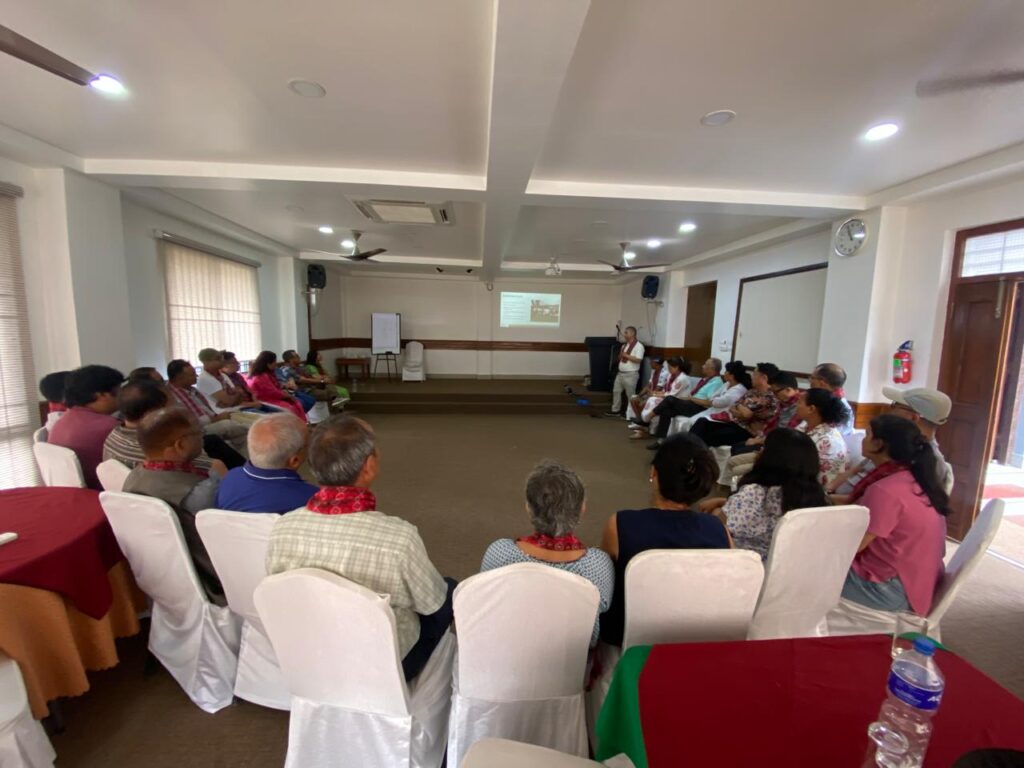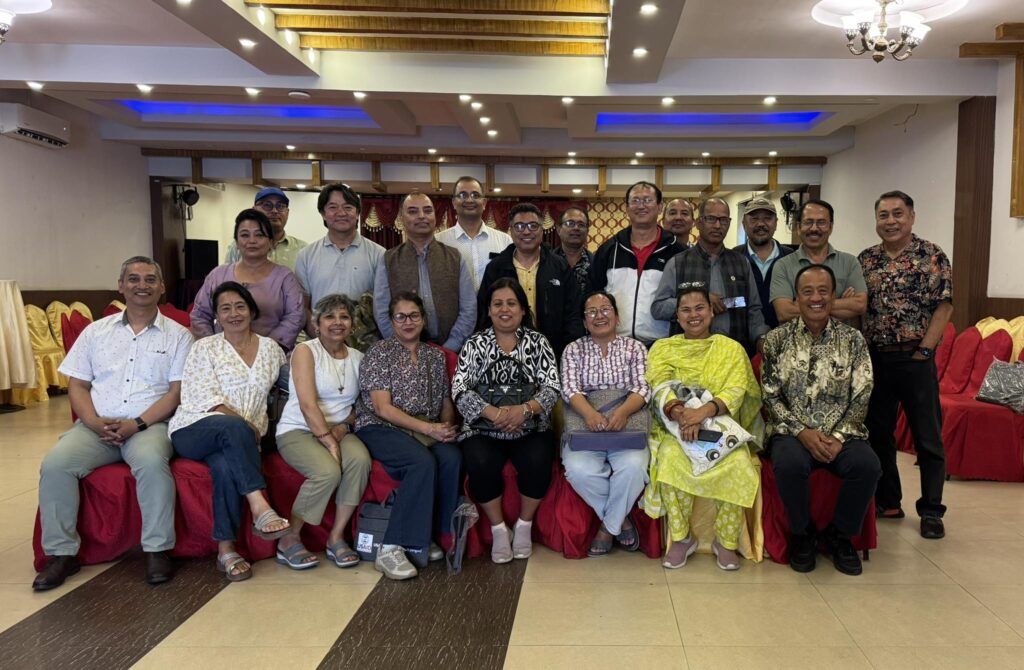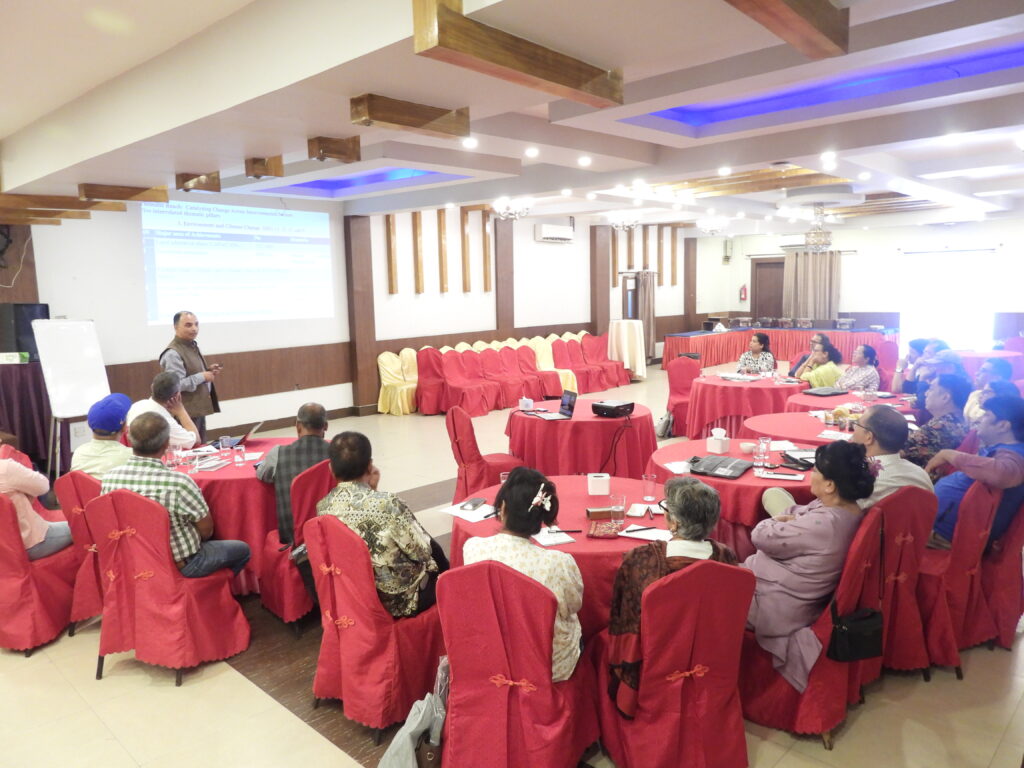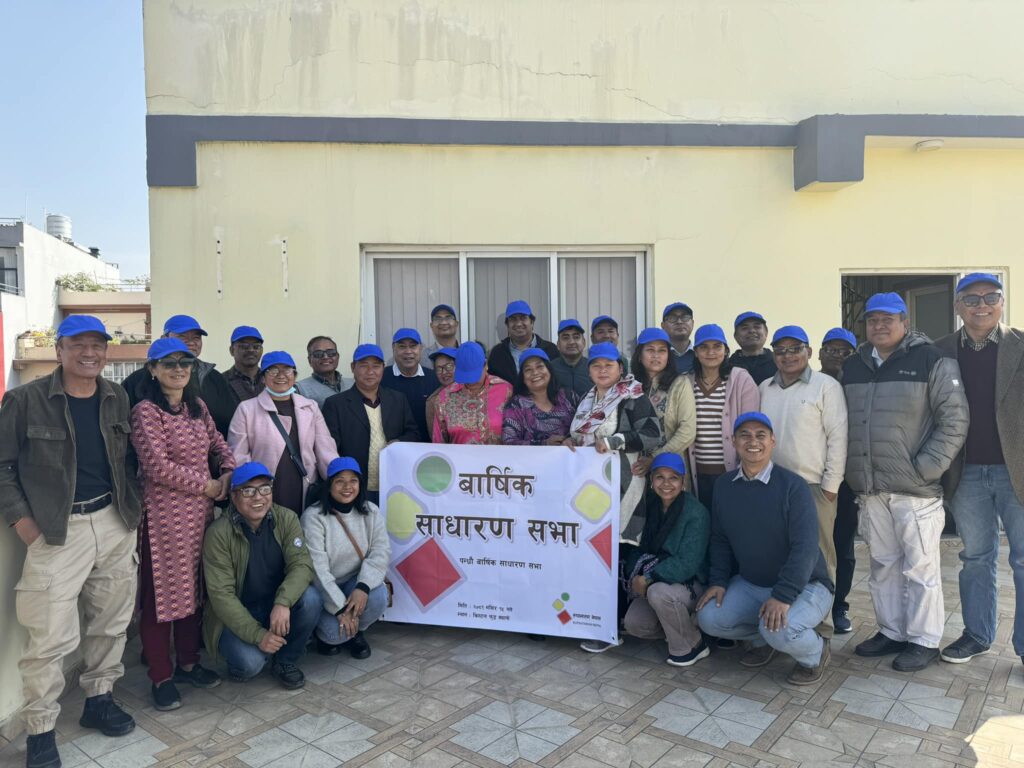
Rupantaran Nepal organized its Annual Retreat Program on June 28–29, 2024, at Hotel Awana
in Thaiba ,Lalitpur. The event brought together 32 members and core staff in a setting designed
to foster reflection, team building, and renewed strategic focus. This two-day program served as
a meaningful opportunity to strengthen interpersonal relationships, revisit the organization’s
achievements, and chart a collective path forward.
The retreat began with informal activities that helped break the ice and build solidarity among
participants. The evening featured engaging games like Bingo, as well as music and dance,
creating a relaxed and joyful atmosphere. These moments of connection laid the foundation for
deeper discussions on the second day.
Day two began with a short hike around the scenic surroundings of the retreat venue, followed
by a series of team-building exercises. A key session led by Mr. Gopal Kafle guided participants
through a strategic reflection on the organization’s journey, challenges, and future aspirations.
CEO Mr. Sohan Lal Shrestha presented an overview of Rupantaran Nepal’s 14-year history,
showcasing major milestones and the organization’s impact over the years.
Participants shared their reflections on what makes Rupantaran Nepal strong, highlighting its
diverse and experienced membership, commitment to social change, strong teamwork, and
trusted reputation. At the same time, they identified areas for improvement, including internal
communication, member engagement, proposal development, and enhancing the organization’s
online presence.
As the retreat concluded, several action points were agreed upon. These included revisiting and
refining RN’s vision and strategic plan, forming thematic committees to improve collaboration,
enhancing digital outreach, and making the annual retreat a regular feature of the organizational
calendar.
The retreat left members feeling more connected and motivated, reinforcing a shared sense of
purpose and a commitment to collective growth. It marked not only a moment of reflection but
also a renewed beginning for the journey ahead.











